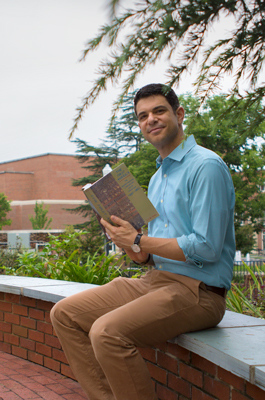
Dr. Peter B. Villella
- History
- Associate Professor, 2016
The First America: The Spanish Monarchy, Creole Patriots, and the Liberal State, 1492-1867
by David A. Brading
David Brading’s magisterial account explores the writings of Spanish conquerors, missionaries, and settlers across three and a half centuries to detail the deepest roots of patriotism and national identity in Latin America. Sweeping and erudite, it unpacks the diverse and often contradictory efforts of Spaniards and their American-born descendants to learn about and understand the lands, indigenous peoples, and folk cultures of their adopted countries. In doing so, Brading reveals how such thinkers communicated the essential symbols and ideas that would later shape nineteenth-century efforts to define nationhood and national belonging in Latin America.
Beyond its massive scope, The First America is notable for at least two interrelated achievements. First, it firmly challenges a long-established conceit in the English-speaking world that disregarded early modern Spanish and Latin American letters as strangled by a superstitious and censorious Inquisition. Brading’s careful study reveals creativity and innovation—even radicalism—in overlooked places, from the conquerors’ own admiration for those whom they conquered to proto-anthropological treatises on the “nature” and origins of Native Americans. Second, it seriously extends the study of intellectual history to Latin America, often disregarded as a periphery irrelevant to the major currents of Western thought. Yet the issues were different in Latin America—linguistically, ethnically, culturally, and geographically diverse far beyond contemporary Europe—and its educated elites naturally engaged in debates and discourses more pertinent to local conditions.
In the end, Brading modeled scholarship addressing Latin America on its own terms, rather than as an echo or facsimile of a presumably archetypal European experience. My own work on the contributions of elite Indians to the foundations of Mexican national identity merely continues from the foundations laid by Brading and those who followed him.
View title in library catalog